Best Time for Dental Work in Turkey | Dutch Patient Guide
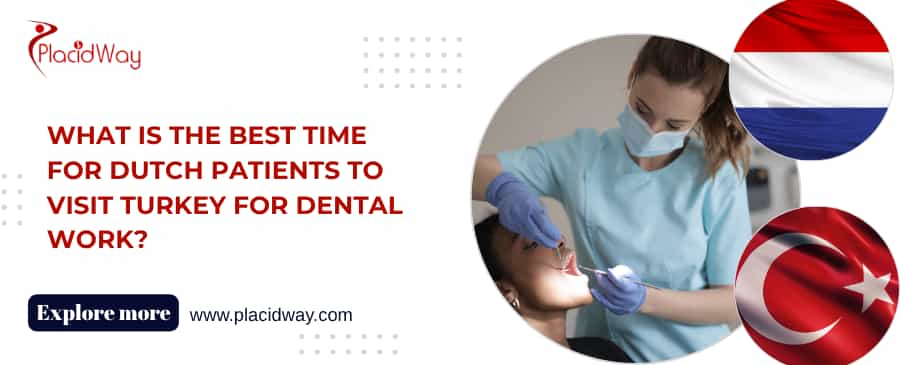
Deciding to get dental work in Turkey is a significant step towards a healthier and more confident smile. For many Dutch patients, Turkey has become a top destination, offering a perfect blend of high-quality dental care, affordable prices, and the chance to enjoy a beautiful holiday. But one of the most critical questions that arises is: when is the best time to go? The timing of your trip can impact everything from the cost of flights and accommodation to your comfort during recovery. This guide is designed to provide you with all the information you need to choose the perfect time for your dental journey to Turkey.
The ideal time for your visit depends on your personal preferences, but generally, the shoulder seasons of spring and autumn are highly recommended. During these months, the weather is pleasant, the tourist crowds are smaller, and you can often find better deals on travel. This makes for a more relaxed and enjoyable experience, allowing you to focus on your treatment and recovery without the stress of peak season travel. We'll delve into the specifics of each season, discuss public holidays, and provide you with a comprehensive overview to help you plan your trip with confidence. By understanding the nuances of timing, you can ensure your dental tourism experience in Turkey is not only successful but also a memorable and pleasant adventure.
In this blog post, we will answer all the important questions you might have about planning your dental trip to Turkey from the Netherlands. From the cost of treatments to what to expect from Turkish dental clinics, we've got you covered. Our goal is to provide you with a clear and detailed roadmap, so you can make an informed decision and embark on your journey to a new smile with peace of mind. Let's explore the best time for you to get that perfect smile in Turkey.
What are the best months for dental travel to Turkey?
When planning your trip for dental work in Turkey, the months of April, May, September, and October stand out as the most favorable. These months fall within the spring and autumn seasons, which are often referred to as the "shoulder seasons" in the tourism industry. The weather during this time is typically mild and sunny, making it comfortable for both travel and recovery. You can expect temperatures that are warm enough to enjoy the outdoors without the intense heat of the summer.
Another significant advantage of traveling during these months is the reduced number of tourists. The summer months of July and August are the peak tourist season in Turkey, which means crowded cities, fuller flights, and higher prices for accommodation. By choosing the shoulder seasons, you can enjoy a more relaxed atmosphere and potentially save money on your travel expenses. This can make your entire experience more enjoyable and less stressful.
Furthermore, dental clinics in Turkey are often less busy during the shoulder seasons. This can mean more flexibility in scheduling your appointments and potentially more personalized attention from your dental team. For Dutch patients, this can be a significant advantage, as it allows for a smoother and more efficient treatment process. You'll have more time to consult with your dentist, ask questions, and feel comfortable with your treatment plan.
What are the pros and cons of visiting Turkey in the spring?
Spring (April to June) is a fantastic time to visit Turkey for your dental treatment. The weather is one of the biggest draws of this season. The temperatures are mild and pleasant, making it perfect for exploring the local area before or after your appointments. The country is in full bloom, with vibrant flowers and lush green landscapes, which can provide a beautiful and calming backdrop for your recovery.
Here are some of the pros of visiting Turkey in the spring:
- Pleasant Weather: The temperatures are comfortable, not too hot and not too cold.
- Beautiful Scenery: The country is at its most beautiful, with blooming flowers and green landscapes.
- Fewer Tourists than Summer: While it is a popular season, it's not as crowded as the peak summer months.
However, there are a few cons to consider. Because spring is such a popular time to visit, you may find that flights and accommodation are more expensive than in the off-season. It's a good idea to book your travel and accommodation well in advance to get the best prices. Additionally, some popular tourist destinations can still be quite busy, especially around the Easter holidays.
Is summer a good time for dental work in Turkey?
Summer (July and August) in Turkey is characterized by hot and sunny weather, which can be a major draw for those looking to combine their dental treatment with a beach holiday. The coastal areas, in particular, are bustling with activity, and there's a vibrant atmosphere. If you enjoy the heat and want to take advantage of the summer holiday season, this could be a good time for you to visit.
However, there are some significant drawbacks to consider. The high temperatures can be uncomfortable, especially during the recovery period after a dental procedure. Swelling and discomfort can be exacerbated by the heat, and you may find it more difficult to rest and recover. It's essential to stay hydrated and avoid strenuous activity if you choose to visit during the summer.
Another major consideration is that summer is the peak tourist season. This means that flights and accommodation will be at their most expensive, and popular destinations will be very crowded. Dental clinics may also be busier, so it's crucial to book your appointments well in advance. If you prefer a quieter and more affordable trip, you may want to avoid the summer months.
What about visiting Turkey in the autumn?
Autumn (September to November) is another highly recommended season for Dutch patients to get dental work in Turkey. Much like spring, the weather in autumn is mild and pleasant. The intense heat of the summer has subsided, but the days are still warm and sunny, especially in September and October. This makes it a very comfortable time for both your treatment and for enjoying the sights of Turkey.
One of the biggest advantages of visiting in the autumn is that the summer crowds have dispersed. This means you can enjoy a more peaceful and relaxed atmosphere. You'll also find that prices for flights and accommodation are generally lower than in the summer. This can help you to save a significant amount of money on your trip.
For those who enjoy swimming, the sea is still warm enough to enjoy in September and even into early October. This allows you to combine your dental treatment with a relaxing beach holiday without the crowds and high prices of the summer. Overall, autumn offers a perfect balance of good weather, lower costs, and a more relaxed atmosphere, making it an ideal time for your dental journey.
Is it a good idea to get dental work in Turkey during the winter?
Winter (December to March) is the least popular time for tourists to visit Turkey, which means it's the most affordable season for travel. If you're on a tight budget, you can find excellent deals on flights and accommodation during these months. The dental clinics will also be less busy, which can make it easier to schedule your appointments.
However, the main drawback of visiting in the winter is the weather. It can be cold and rainy, especially in the northern parts of the country and in Istanbul. The coastal areas in the south, such as Antalya, have milder winters, but you should still be prepared for some cooler and wetter days. If you're not planning to spend much time outdoors and are primarily focused on your dental treatment, then the winter could be a good option for you.
It's also worth noting that some tourist attractions and restaurants may have shorter opening hours or be closed during the winter months. If you're hoping to combine your dental trip with a lot of sightseeing, you may find that the winter is not the best time to visit. However, if your priority is to get high-quality dental care at the lowest possible cost, then the winter is definitely worth considering.
How do public holidays in Turkey affect dental treatment?
When planning your trip for dental work in Turkey, it's crucial to be aware of the country's public holidays. Dental clinics, like most other businesses, will be closed on these days. The most important public holidays to be aware of are the religious holidays of Ramazan Bayrami (Eid al-Fitr) and Kurban Bayrami (Eid al-Adha). The dates of these holidays change each year as they are based on the lunar calendar.
Here is a table of the main public holidays in Turkey for 2025:
| Date | Holiday |
|---|---|
| January 1 | New Year's Day |
| March 30 - April 1 | Ramazan Bayrami (Eid al-Fitr) |
| April 23 | National Sovereignty and Children's Day |
| May 1 | Labour and Solidarity Day |
| May 19 | Commemoration of Atatürk, Youth and Sports Day |
| June 6 - 9 | Kurban Bayrami (Eid al-Adha) |
| July 15 | Democracy and National Unity Day |
| August 30 | Victory Day |
| October 29 | Republic Day |
It's a good idea to check the dates of these holidays before you book your flights and accommodation. If your treatment plan requires multiple appointments, you'll need to make sure that your visit doesn't clash with a public holiday. Your chosen dental clinic will be able to advise you on their opening hours during these times.
Why is dental work in Turkey so much cheaper for Dutch patients?
One of the main reasons that Dutch patients are flocking to Turkey for dental work is the significant cost savings. The price of dental treatments in Turkey can be up to 70% lower than in the Netherlands. This is not because the quality of care is lower, but rather due to a combination of economic factors.
The cost of living in Turkey is significantly lower than in the Netherlands, which means that the overhead costs for running a dental clinic, such as rent, utilities, and staff salaries, are much lower. This allows clinics to offer their services at a much more affordable price. Additionally, the Turkish government actively promotes medical tourism, which has led to a competitive market and further drives down prices.
The favorable exchange rate between the Euro and the Turkish Lira also plays a significant role. For patients paying in Euros, the cost of treatment becomes even more affordable. This combination of factors means that you can receive world-class dental care, using the same high-quality materials and technology as you would find in the Netherlands, but at a fraction of the cost.
Is the quality of dental care in Turkey as good as in the Netherlands?
A common concern for patients considering dental treatment abroad is whether the quality of care will be up to the standards they are used to at home. You can rest assured that the quality of dental work in Turkey is exceptionally high. Many Turkish dentists have been trained in Europe or the United States and are members of international dental associations.
Turkish dental clinics are modern and well-equipped, often featuring the very latest in dental technology. This includes things like 3D imaging, digital smile design, and CAD/CAM technology for creating crowns and veneers. The materials used, such as implants and crowns, are typically sourced from the same reputable international brands that are used in the Netherlands.
Furthermore, many dental clinics in Turkey are accredited by international organizations, such as the Joint Commission International (JCI). This means that they are held to the same high standards of safety and quality as hospitals and clinics in the Netherlands. When choosing a clinic, be sure to look for these accreditations as a sign of quality and trustworthiness.
How do I choose a good dental clinic in Turkey?
Choosing the right dental clinic is the most important step in your dental tourism journey. With so many clinics to choose from, it can be overwhelming to know where to start. Here are a few key things to look for when making your decision:
- Accreditations and Certifications: Look for clinics that are accredited by international organizations like the JCI. This is a good indicator of their commitment to quality and safety.
- Dentist's Qualifications: Research the qualifications and experience of the dentists at the clinic. Many clinics will have this information on their website.
- Patient Reviews and Testimonials: Read reviews from previous patients to get an idea of their experiences. You can find reviews on the clinic's website, on Google, and on independent review platforms.
- Before and After Photos: Ask to see before and after photos of previous patients who have had similar treatments to what you are considering. This will give you a good idea of the quality of their work.
- Communication: Choose a clinic that has excellent communication. They should be responsive to your questions and provide you with a clear and detailed treatment plan.
It's also a good idea to have an online consultation with the dentist before you travel. This will give you a chance to discuss your treatment goals, ask questions, and get a feel for the clinic and the dental team. A reputable clinic will be happy to provide you with a free, no-obligation consultation.
What is the process for getting dental work in Turkey?
The process of getting dental work in Turkey is straightforward and well-organized, especially when you choose a clinic that is experienced in treating international patients. Here's a general overview of what you can expect:
- Online Consultation: The first step is to have an online consultation with the clinic. You will typically be asked to send photos of your teeth and any recent X-rays you have. The dentist will then assess your case and provide you with a personalized treatment plan and a quote.
- Booking Your Trip: Once you are happy with the treatment plan, you can book your flights and accommodation. Many clinics offer all-inclusive packages that include accommodation, airport transfers, and even a personal translator.
- Arrival in Turkey: When you arrive in Turkey, you will be met at the airport and taken to your hotel. Your first appointment at the clinic will usually be scheduled for the following day.
- In-Clinic Consultation and Treatment: At your first appointment, you will have a thorough examination, including new X-rays and 3D scans. The dentist will confirm your treatment plan with you before starting the treatment.
- Recovery and Follow-Up: After your treatment, you will be given detailed aftercare instructions. You will have follow-up appointments to monitor your progress before you return home.
The duration of your stay will depend on the type of treatment you are having. For simple procedures like teeth whitening or veneers, you may only need to stay for a few days. For more complex treatments like dental implants, you may need to make two trips to Turkey, several months apart, to allow for healing.
Can I combine my dental treatment with a holiday?
One of the biggest advantages of getting dental work in Turkey is the opportunity to combine your treatment with a holiday. Turkey is a beautiful country with a rich history and culture, and there is something for everyone to enjoy. Whether you prefer relaxing on the beach, exploring ancient ruins, or shopping in bustling bazaars, you'll find plenty to do in your free time.
Many dental clinics are located in popular tourist destinations like Istanbul, Antalya, and Izmir. This makes it easy to enjoy a holiday before or after your treatment. You could spend a few days exploring the historic sites of Istanbul, relaxing on the beautiful beaches of Antalya, or soaking up the vibrant atmosphere of Izmir.
It's important to remember that you will need some time to rest and recover after your dental treatment. It's a good idea to plan your more strenuous activities for before your treatment, and to allow for some downtime afterwards. Your dentist will be able to advise you on what activities are safe for you to do during your recovery period.
What should I expect during my dental consultation in Turkey?
Your initial consultation is a crucial part of your dental journey. This is your opportunity to meet your dentist, discuss your goals, and ask any questions you may have. A good consultation should be thorough and informative, and you should leave feeling confident and comfortable with your treatment plan.
Here's what you can typically expect during your consultation:
- Comprehensive Examination: The dentist will perform a thorough examination of your teeth, gums, and jaw. This will include taking X-rays and, in many cases, a 3D CBCT scan. This allows the dentist to get a detailed view of your oral health and to plan your treatment with precision.
- Discussion of Your Goals: You will have the opportunity to discuss your aesthetic and functional goals with the dentist. Whether you're looking for a complete smile makeover or a single implant, the dentist will listen to your needs and preferences.
- Treatment Plan and Quote: Based on the examination and your goals, the dentist will create a personalized treatment plan for you. They will explain the different treatment options available to you and provide you with a detailed quote for the cost of each option.
- Q&A Session: You will have plenty of time to ask any questions you may have about the treatment, the materials used, the recovery process, and anything else you are concerned about.
A reputable clinic will never pressure you into making a decision. They will provide you with all the information you need to make an informed choice, and they will give you time to consider your options. You should feel comfortable and confident in the hands of your dental team.
What is the recovery and aftercare like?
The recovery process will vary depending on the type of treatment you have had. For simple procedures like teeth whitening, there is no recovery time at all. For more invasive procedures like dental implants or extractions, you will need to allow for some time to rest and heal.
Your dentist will provide you with detailed aftercare instructions, which you should follow carefully. This may include advice on:
- Pain Management: You may be prescribed pain medication to manage any discomfort.
- Diet: You may need to stick to a soft food diet for a few days after your surgery.
- Oral Hygiene: You will be shown how to keep the surgical area clean to prevent infection.
- Activity Levels: You may be advised to avoid strenuous activity for a period of time.
It's important to remember that your dental clinic is there to support you throughout your recovery. If you have any questions or concerns, you should not hesitate to contact them. Many clinics offer 24/7 support for their international patients. They will also schedule follow-up appointments to monitor your healing before you return home.
Are Turkish dental clinics safe and hygienic?
Safety and hygiene are of the utmost importance in any medical setting, and dental clinics in Turkey are no exception. Reputable clinics adhere to strict sterilization and hygiene protocols to ensure the safety of their patients. Many clinics follow European and international standards, and their equipment is regularly maintained and updated.
When choosing a clinic, look for evidence of their commitment to safety and hygiene. This could include:
- International Accreditations: As mentioned before, accreditations from organizations like the JCI are a good sign of a clinic's commitment to quality and safety.
- Sterilization Facilities: A reputable clinic will be happy to show you their sterilization facilities. They should have a dedicated sterilization room with modern autoclaves for sterilizing their instruments.
- Clean and Modern Environment: The clinic should be clean, modern, and well-maintained.
By choosing a reputable and accredited clinic, you can be confident that you are receiving treatment in a safe and hygienic environment. Don't be afraid to ask questions about a clinic's safety protocols. A good clinic will be transparent and happy to provide you with this information.
Will there be a language barrier?
For Dutch patients, the language barrier is a common concern when considering dental treatment abroad. However, you will find that most dental clinics in Turkey that cater to international patients have staff who are fluent in English. This includes the dentists, dental assistants, and patient coordinators.
Many clinics also go a step further and provide translators for a variety of languages, including Dutch. This ensures that you can communicate effectively with your dental team and that all of your questions and concerns are understood. When you are researching clinics, be sure to ask about their language support services.
Having clear and open communication with your dentist is essential for a successful treatment outcome. By choosing a clinic that offers language support, you can eliminate any potential misunderstandings and feel confident that you are on the same page as your dental team. This can make the entire experience much more comfortable and stress-free.
What are the payment options for dental work in Turkey?
When it comes to paying for your dental work in Turkey, you will find that most clinics offer a variety of payment options to suit your needs. It's always a good idea to discuss payment with the clinic before you travel so that you can be prepared.
Here are the most common payment methods accepted by dental clinics in Turkey:
- Cash: Many clinics accept cash payments in a variety of currencies, including Euros, US Dollars, and British Pounds. You may even get a discount for paying in cash.
- Credit Cards: Most clinics accept major credit cards like Visa and MasterCard. Be sure to check with your bank about any foreign transaction fees that may apply.
- Bank Transfer: You may be able to pay for your treatment via a bank transfer. This is a secure way to pay, but it can take a few days for the funds to clear, so you'll need to arrange it in advance.
Some clinics may also offer financing options, allowing you to spread the cost of your treatment over a period of time. Be sure to ask about this if it is something you are interested in. A reputable clinic will be transparent about their prices and payment options, and they will provide you with a detailed breakdown of the costs before you begin your treatment.
What are some travel and accommodation tips for Dutch patients?
Planning your travel and accommodation is an important part of your dental journey to Turkey. Here are a few tips to help you make your trip as smooth and stress-free as possible:
- Book in Advance: It's always a good idea to book your flights and accommodation in advance, especially if you are traveling during the spring or autumn. This will help you to get the best prices and to secure your preferred dates.
- Choose a Convenient Location: When choosing your accommodation, look for a hotel that is conveniently located to your dental clinic. This will make it easier to get to your appointments.
- Ask Your Clinic for Help: Many dental clinics have partnerships with local hotels and can help you to book your accommodation at a discounted rate. They can also arrange for your airport transfers, which can be a great help after a long flight.
- Pack for the Weather: Be sure to check the weather forecast for the time of year you are visiting and pack accordingly. Even in the spring and autumn, it can be cool in the evenings, so it's a good idea to bring a light jacket.
- Get Travel Insurance: It's always a good idea to have travel insurance that covers medical emergencies. This will give you peace of mind in case of any unexpected events.
By planning ahead and taking advantage of the services offered by your dental clinic, you can ensure that your trip to Turkey is a comfortable and enjoyable one. This will allow you to focus on what's most important: getting your new smile.
Ready to take the next step towards a beautiful, healthy smile? Explore your options with PlacidWay, your trusted partner in medical tourism. We can connect you with the best dental clinics in Turkey and help you plan your perfect dental holiday. Visit PlacidWay today to get a free quote and start your journey to a new smile!


.png)




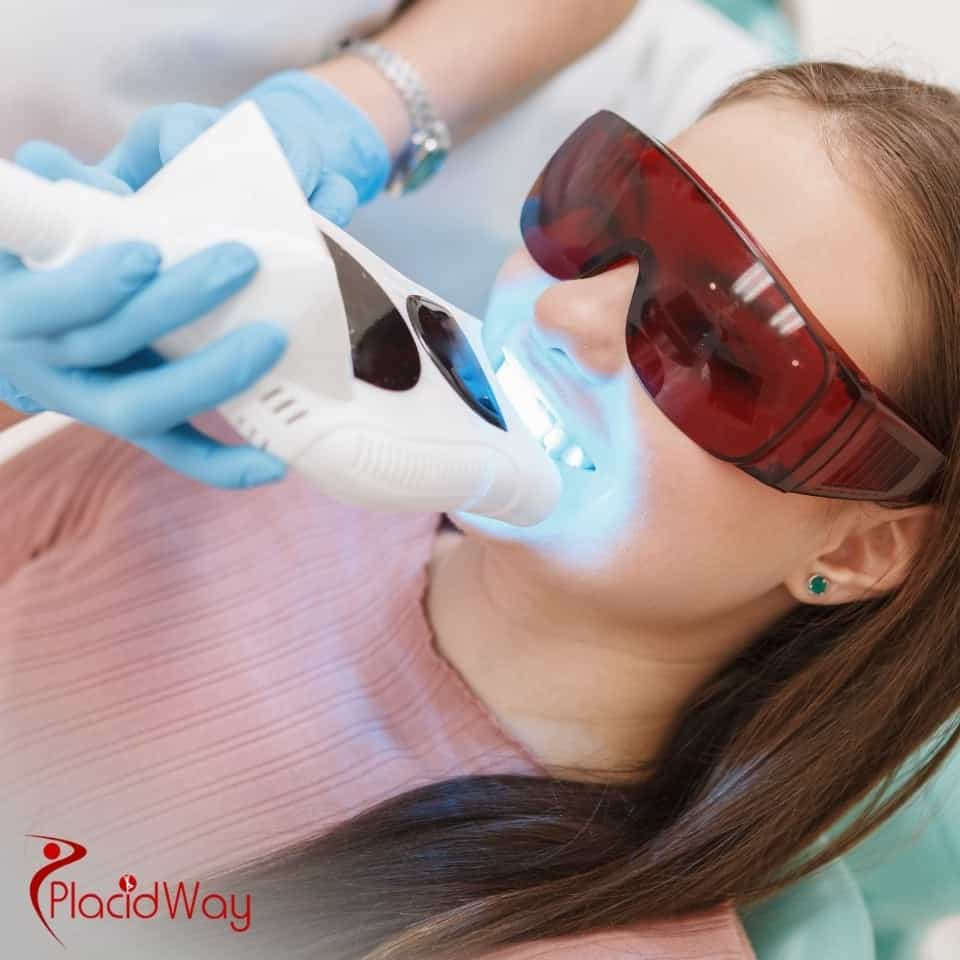

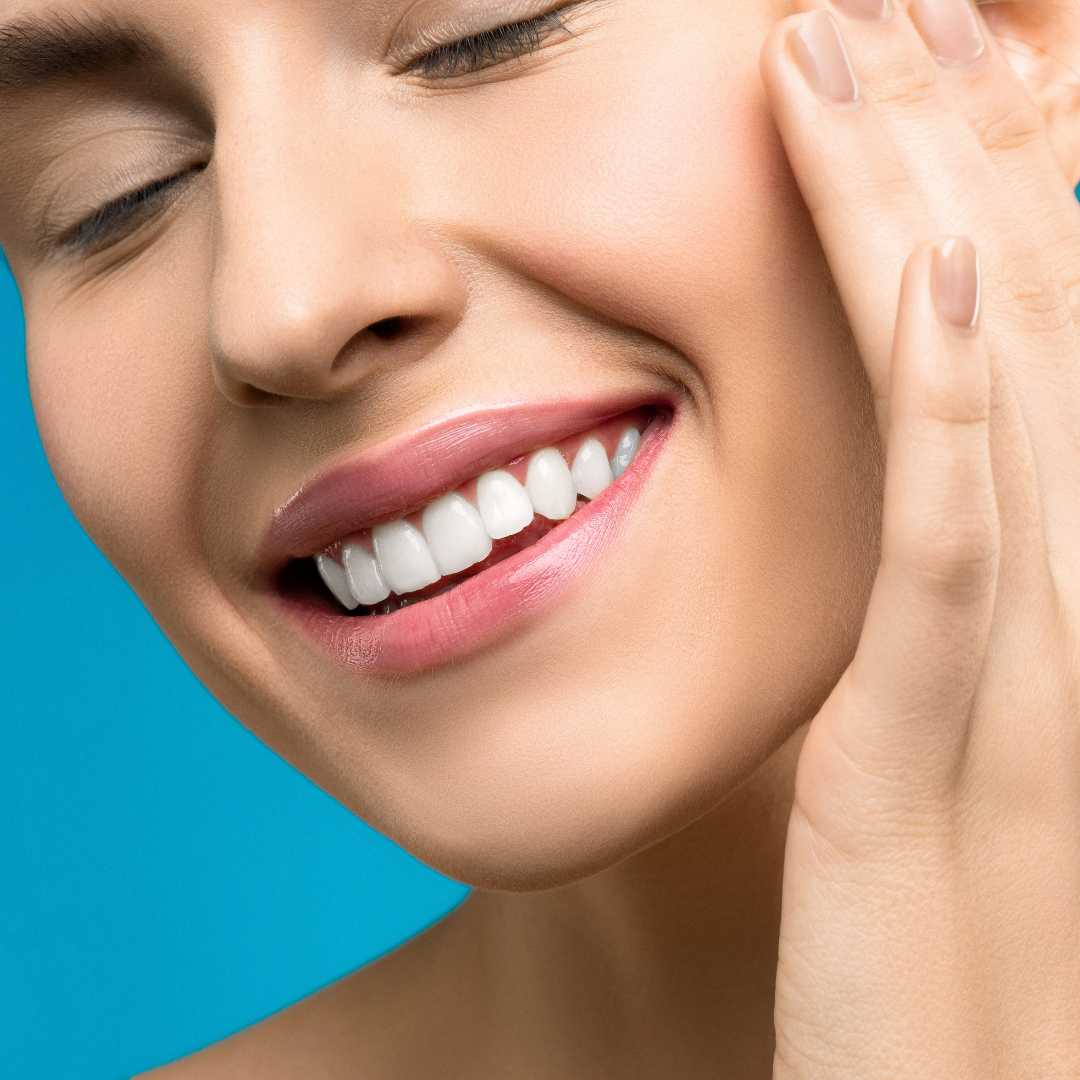
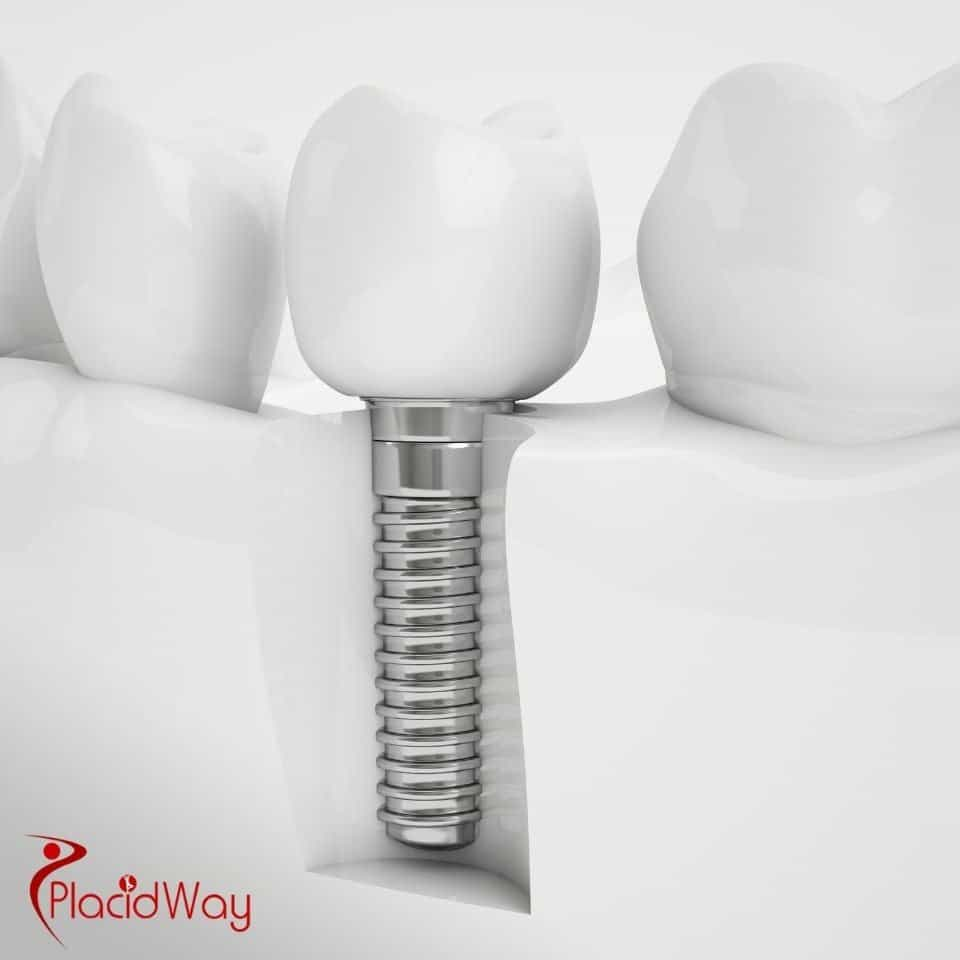

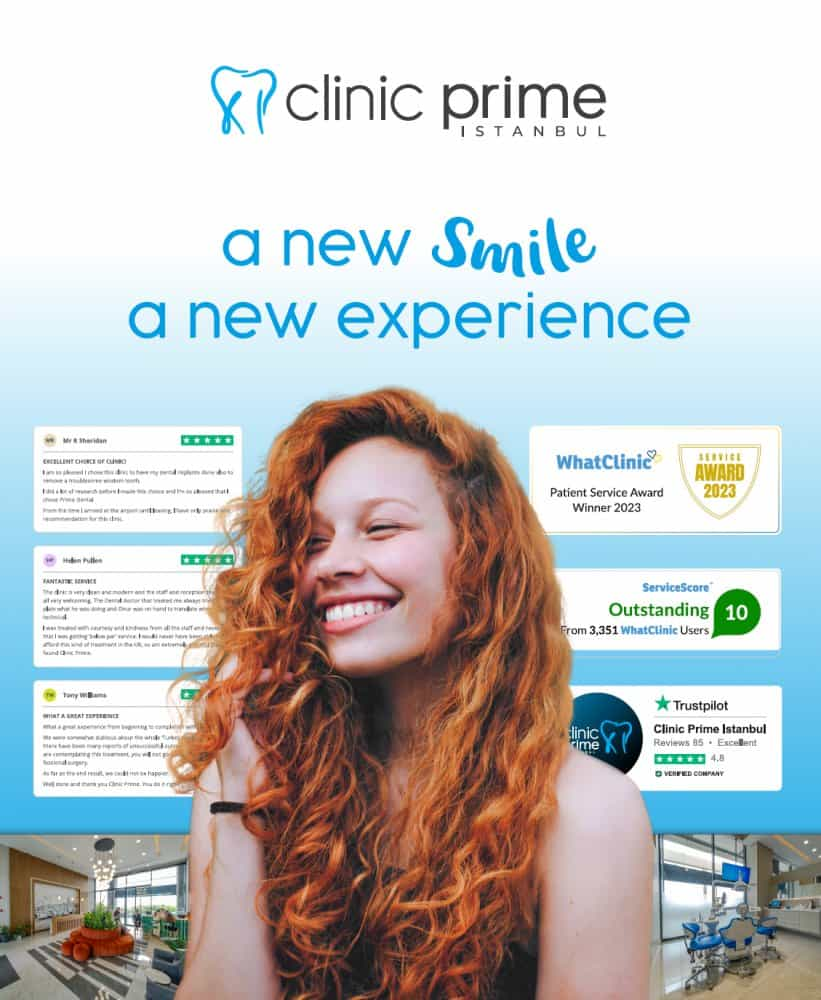

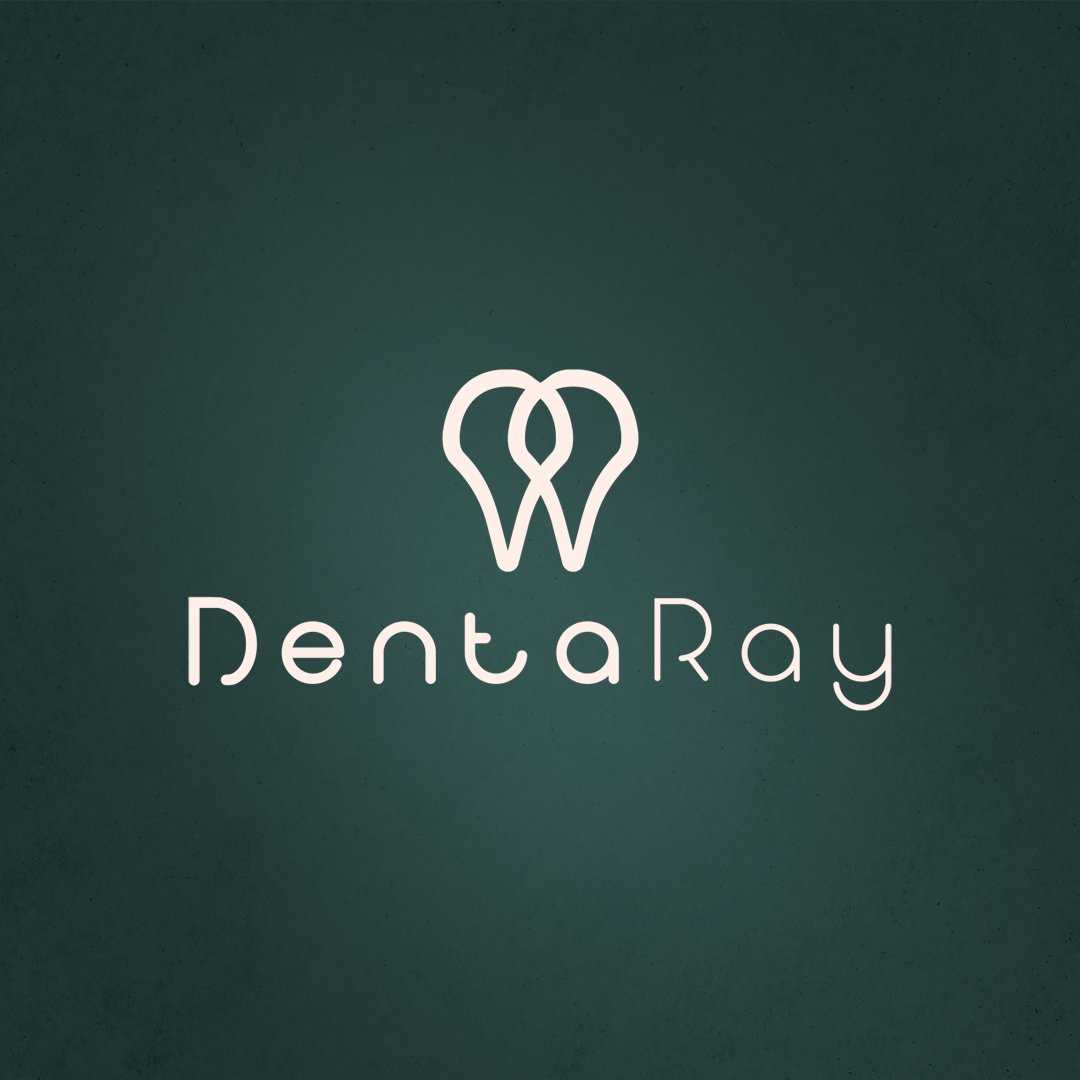
.png)

Share this listing